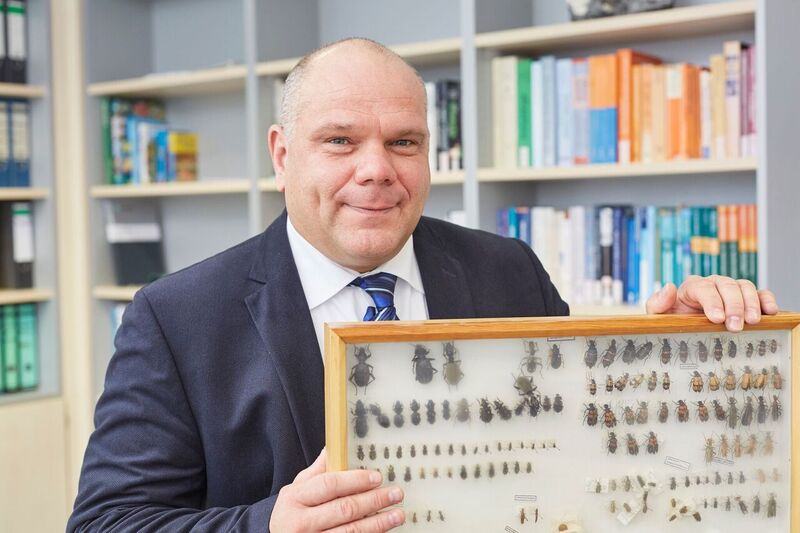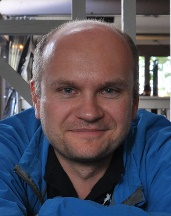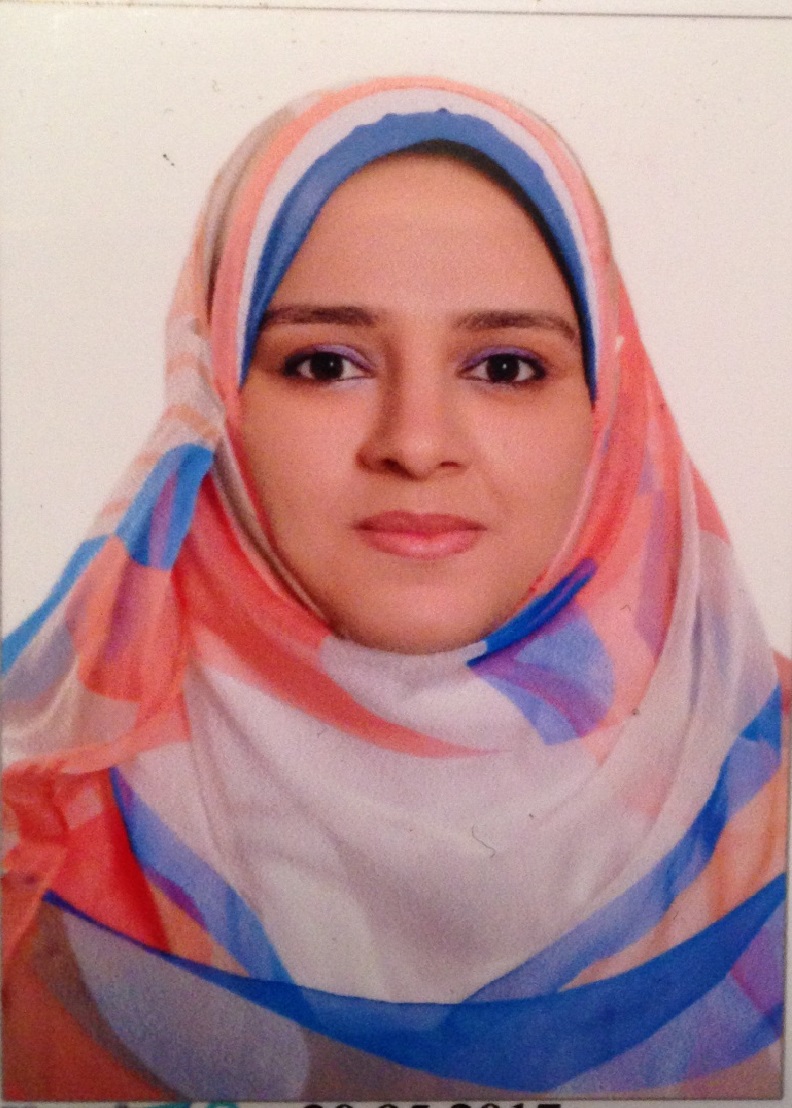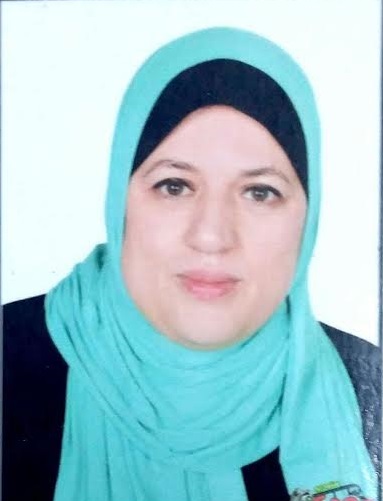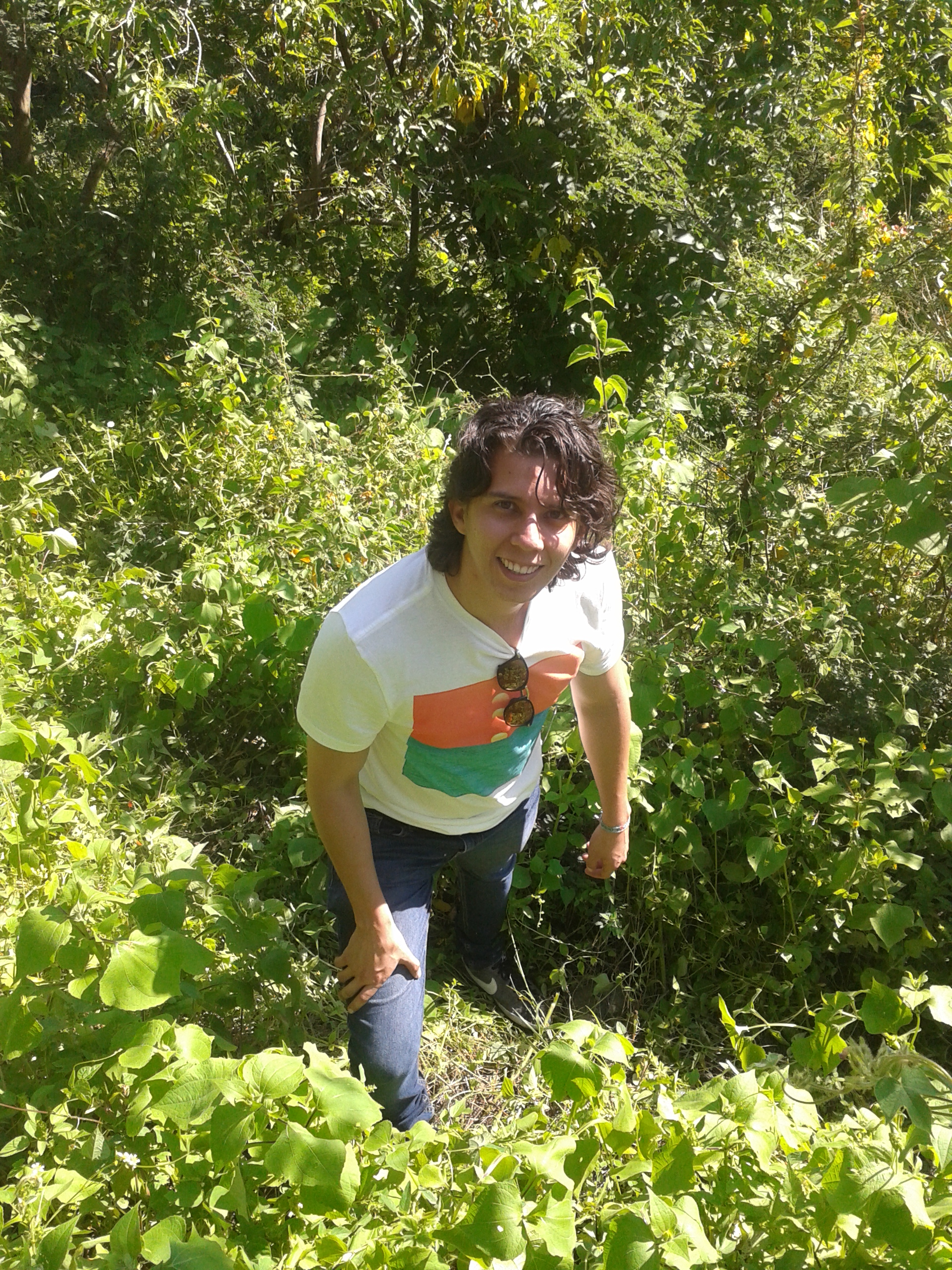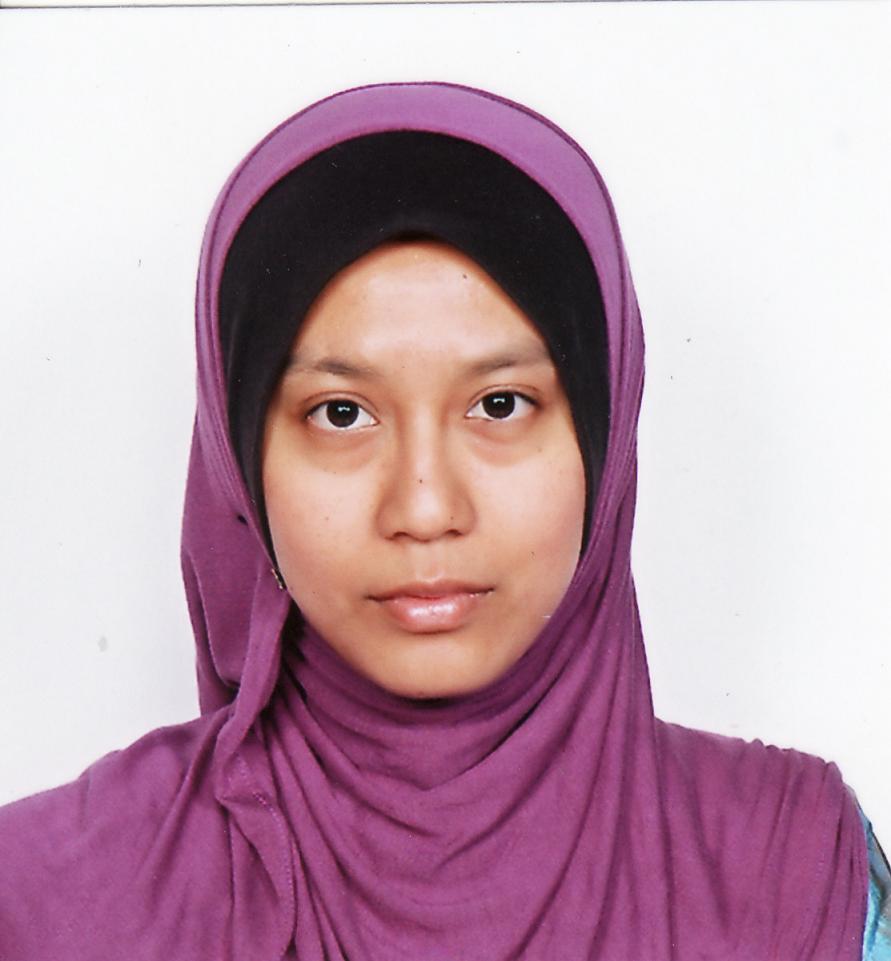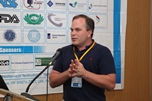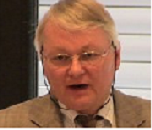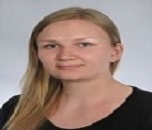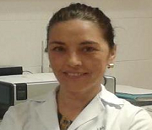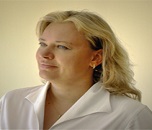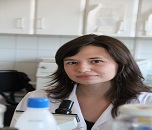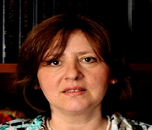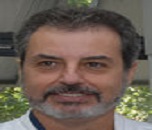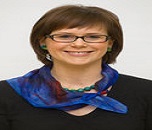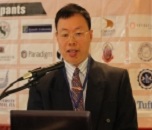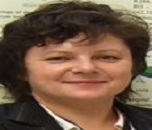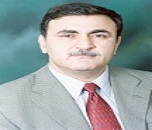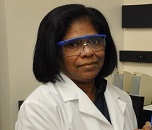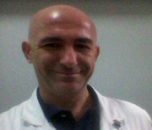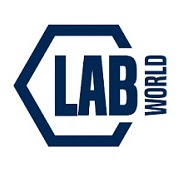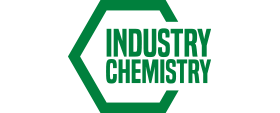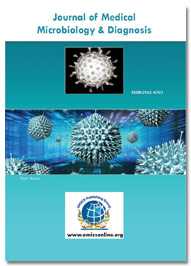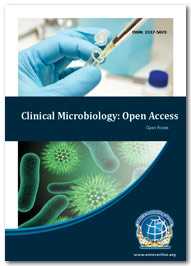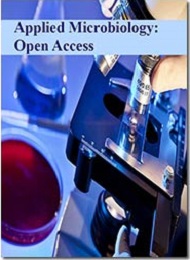Theme: Future Trends of Microbial Interactions for Innovative Research
Microbial Interactions 2018
Track 1: Microbial Interactions
The inter and intra relationships between symbiosis and antibiosis known as microbial interactions In microbial Interactions two species will interact in which each species derives a benefit. These reactions may occur intermittent, permanent or cyclic. Microbial interactions are diverse ubiquitous and very important in the function of any biological community. Pathogenesis are the disease causing agents like virus, bacteria , fungi .
Related conferences:
10th Microbiology Conferences, June 14-16, 2018, London, UK; 16th Pharmaceutical Microbiology Conferences, May 21-23, 2018 Vienna, Austria; 10th Advanced Microbiology conferences, June 14-16, 2018, London, UK; 10th Virology Conferences, July 02-04, 2018 Vienna, Austria; 11th Medical Microbiology conferences, July 19-21,2018, Rome, Italy; 20th International Conference on Clinical Microbiology and Infectious Diseases, May 14 - 15, 2018, London, UK; 6th STDs, STIs & HIV/AIDS Conferences, October 29-30, 2018, Madrid, Spain;
Related Societies & Associations
USA: American society for microbiology, Society for industrial Microbiology and biotechnology, Society for Applied Microbiology, Society for industrial microbiology, International Union of microbiological societies, Southern California Branch of the American Society for Microbiology, Southeastern association for clinical microbiology
ASIA-PACIFIC: Pan-Pacific Surgical Association Congress, Federation of Asia-Pacific Microbiology Societies, Malaysian Society of Infectious Diseases, Singapore Society for Microbiology and Biotechnology, Malaysian Society for Microbiology, Asia Pacific Society of Clinical Microbiology and Infection
EUROPE: Italian Society of Agro-Food and Microbial Biotechnologies, Federation of European Microbiological Societies, European Molecular Biology Organization, Society for Applied Microbiology, Swiss Society for Infectious Disease, European Molecular Biology Organization, International Center for Genetic Engineering and Biotechnology
Track 2: Microbial Ecology
Microbial ecology is the study of relationship between microbes and their surrounds, biased image of the role of microbes in nature obtained from laboratory studies of pure culture cultures data leads to inappropriate conclusions about their relevance. Eg. E. coli grows in animals intestinal tracts but merely survive in aquatic environments , E. coli are transients and not residents of aquifers from which they can be isolated.Microbial ecology studies entail the use of conventional microbiological techniques (cultural / enumeration procedures, EM, radioactive tracer methods) and modern molecular techniques (gene analysis, nuclei acid probes, sequencing) .
Related conferences:
16th Pharmaceutical Microbiology Conferences, May 21-23, 2018 Vienna, Austria; 10th Advanced Microbiology conferences, June 14-16, 2018, London, UK; 10th Virology Conferences, July 02-04, 2018 Vienna, Austria; 11th Medical Microbiology conferences, July 19-21,2018, Rome, Italy; 20th International Conference on Clinical Microbiology and Infectious Diseases, May 14 - 15, 2018, London, UK; 6th STDs, STIs & HIV/AIDS Conferences, October 29-30, 2018, Madrid, Spain;
Related Societies & Associations
USA: American society for microbiology, Society for industrial Microbiology and biotechnology, Society for Applied Microbiology, Society for industrial microbiology, International Union of microbiological societies, Southern California Branch of the American Society for Microbiology, Southeastern association for clinical microbiology
ASIA-PACIFIC: Pan-Pacific Surgical Association Congress, Federation of Asia-Pacific Microbiology Societies, Malaysian Society of Infectious Diseases, Singapore Society for Microbiology and Biotechnology, Malaysian Society for Microbiology, Asia Pacific Society of Clinical Microbiology and Infection
EUROPE: Italian Society of Agro-Food and Microbial Biotechnologies, Federation of European Microbiological Societies, European Molecular Biology Organization, Society for Applied Microbiology, Swiss Society for Infectious Disease, European Molecular Biology Organization, International Center for Genetic Engineering and Biotechnology
Track 3: Host-pathogen interaction
The host-pathogen interaction is defined as how microbes or viruses sustain themselves within host organisms on a molecular, cellular, organismal or population level. This term is most commonly used to refer to disease-causing microorganisms although they may not cause illness in all hosts. Because of this, the definition has been expanded to how known pathogens survive within their host, whether they cause disease or not.On the molecular and cellular level, microbes can infect the host and divide rapidly, causing disease by being there and causing a homeostatic imbalance in the body, or by secreting toxins which cause symptoms to appear. Viruses can also infect the host with virulent DNA, which can affect normal cell processes (transcription, translation, etc.), protein folding, or evading the immune response.
Related conferences:
10th Microbiology Conferences, June 14-16, 2018, London, UK; 16th Pharmaceutical Microbiology Conferences, May 21-23, 2018 Vienna, Austria; 10th Advanced Microbiology conferences, June 14-16, 2018, London, UK; 10th Virology Conferences, July 02-04, 2018 Vienna, Austria; 11th Medical Microbiology conferences, July 19-21,2018, Rome, Italy; 20th International Conference on Clinical Microbiology and Infectious Diseases, May 14 - 15, 2018, London, UK; 6th STDs, STIs & HIV/AIDS Conferences, October 29-30, 2018, Madrid, Spain;
Related Societies & Associations
USA: American society for microbiology, Society for industrial Microbiology and biotechnology, Society for Applied Microbiology, Society for industrial microbiology, International Union of microbiological societies, Southern California Branch of the American Society for Microbiology, Southeastern association for clinical microbiology
ASIA-PACIFIC: Pan-Pacific Surgical Association Congress, Federation of Asia-Pacific Microbiology Societies, Malaysian Society of Infectious Diseases, Singapore Society for Microbiology and Biotechnology, Malaysian Society for Microbiology, Asia Pacific Society of Clinical Microbiology and Infection
EUROPE: Italian Society of Agro-Food and Microbial Biotechnologies, Federation of European Microbiological Societies, European Molecular Biology Organization, Society for Applied Microbiology, Swiss Society for Infectious Disease, European Molecular Biology Organization, International Center for Genetic Engineering and Biotechnology
Track 4: Bioremediation
Bioremediation is a process used to treat contaminated media, including water, soil and subsurface material, by altering environmental conditions to stimulate growth of microorganisms and degrade the target pollutants. Biological treatment is a similar approach used to treat wastes including wastewater, industrial waste and solid waste.
Related conferences:
10th Microbiology Conferences, June 14-16, 2018, London, UK; 16th Pharmaceutical Microbiology Conferences, May 21-23, 2018 Vienna, Austria; 10th Advanced Microbiology conferences, June 14-16, 2018, London, UK; 10th Virology Conferences, July 02-04, 2018 Vienna, Austria; 11th Medical Microbiology conferences, July 19-21,2018, Rome, Italy; 20th International Conference on Clinical Microbiology and Infectious Diseases, May 14 - 15, 2018, London, UK; 6th STDs, STIs & HIV/AIDS Conferences, October 29-30, 2018, Madrid, Spain;
Related Societies & Associations
USA: American society for microbiology, Society for industrial Microbiology and biotechnology, Society for Applied Microbiology, Society for industrial microbiology, International Union of microbiological societies, Southern California Branch of the American Society for Microbiology, Southeastern association for clinical microbiology
ASIA-PACIFIC: Pan-Pacific Surgical Association Congress, Federation of Asia-Pacific Microbiology Societies, Malaysian Society of Infectious Diseases, Singapore Society for Microbiology and Biotechnology, Malaysian Society for Microbiology, Asia Pacific Society of Clinical Microbiology and Infection
EUROPE: Italian Society of Agro-Food and Microbial Biotechnologies, Federation of European Microbiological Societies, European Molecular Biology Organization, Society for Applied Microbiology, Swiss Society for Infectious Disease, European Molecular Biology Organization, International Center for Genetic Engineering and Biotechnology
Track 5: Microbiology & Infectious Diseases
Infectious diseases are disorders caused by organisms such as bacteria, viruses, fungi or parasites. Microorganisms that cause illness are all things considered called pathogens. Numerous living beings live in and on our bodies. They're regularly safe or even supportive, yet under specific conditions, a few creatures may bring about illness. Some irresistible illnesses can be passed from individual to individual. Some irresistible sicknesses can be passed from individual to individual. Some are transmitted by nibbles from bugs or creatures. Also, others are obtained by ingesting sullied sustenance or water or being presented to life forms in nature. Signs and side effects fluctuate contingent upon the life form bringing on the contamination, yet regularly incorporate fever and weariness.
Related conferences:
10th Microbiology Conferences, June 14-16, 2018, London, UK; 16th Pharmaceutical Microbiology Conferences, May 21-23, 2018 Vienna, Austria; 10th Advanced Microbiology conferences, June 14-16, 2018, London, UK; 10th Virology Conferences, July 02-04, 2018 Vienna, Austria; 11th Medical Microbiology conferences, July 19-21,2018, Rome, Italy; 20th International Conference on Clinical Microbiology and Infectious Diseases, May 14 - 15, 2018, London, UK; 6th STDs, STIs & HIV/AIDS Conferences, October 29-30, 2018, Madrid, Spain;
Related Societies & Associations
USA: American society for microbiology, Society for industrial Microbiology and biotechnology, Society for Applied Microbiology, Society for industrial microbiology, International Union of microbiological societies, Southern California Branch of the American Society for Microbiology, Southeastern association for clinical microbiology
ASIA-PACIFIC: Pan-Pacific Surgical Association Congress, Federation of Asia-Pacific Microbiology Societies, Malaysian Society of Infectious Diseases, Singapore Society for Microbiology and Biotechnology, Malaysian Society for Microbiology, Asia Pacific Society of Clinical Microbiology and Infection
EUROPE: Italian Society of Agro-Food and Microbial Biotechnologies, Federation of European Microbiological Societies, European Molecular Biology Organization, Society for Applied Microbiology, Swiss Society for Infectious Disease, European Molecular Biology Organization, International Center for Genetic Engineering and Biotechnology
Track 6: Microbial Communities
The activities of complex communities of microbes affect biogeochemical transformations in natural, managed and engineered ecosystems. Meaningfully defining what constitutes a community of interacting microbial populations is not trivial, but is important for rigorous progress in the field. Important elements of research in microbial community ecology include the analysis of functional pathways for nutrient resource and energy flows, mechanistic understanding of interactions between microbial populations and their environment, and the emergent properties of the complex community.
Related conferences:
2nd Medical Parasitology conferences, Sep 18-19, 2017 Zurich, Switzerland; 16th Microbiology Conferences, May 21-23, 2018, Vienna, Austria; 16th Pharmaceutical Microbiology Conferences, May 21-23, 2018 Vienna, Austria; 10th Advanced Microbiology conferences, June 14-16, 2018, London, UK; 10th Virology Conferences, July 02-04, 2018 Vienna, Austria; 11th Medical Microbiology conferences, July 19-21,2018, Rome, Italy;
Related Societies & Associations
USA: American society for microbiology, Society for industrial Microbiology and biotechnology, Society for Applied Microbiology, Society for industrial microbiology, International Union of microbiological societies, Southern California Branch of the American Society for Microbiology, Southeastern association for clinical microbiology
ASIA-PACIFIC: Pan-Pacific Surgical Association Congress, Federation of Asia-Pacific Microbiology Societies, Malaysian Society of Infectious Diseases, Singapore Society for Microbiology and Biotechnology, Malaysian Society for Microbiology, Asia Pacific Society of Clinical Microbiology and Infection
EUROPE: Italian Society of Agro-Food and Microbial Biotechnologies, Federation of European Microbiological Societies, European Molecular Biology Organization, Society for Applied Microbiology, Swiss Society for Infectious Disease, European Molecular Biology Organization, International Center for Genetic Engineering and Biotechnology
Track 7: Microbial Biotechnology
Microbial biotechnology includes exploitation, genetic manipulation and alterations of microbes involves fermentation and various upstream and downstream processes were developed for the production of food and feed grade microbial protein from industrial by-products, such as methanol and alkanes. These processes lead to considerable savings in capital, energy and labour costs.
Related conferences:
16th Pharmaceutical Microbiology Conferences, May 21-23, 2018 Vienna, Austria; 10th Advanced Microbiology conferences, June 14-16, 2018, London, UK; 10th Virology Conferences, July 02-04, 2018 Vienna, Austria; 11th Medical Microbiology conferences, July 19-21,2018, Rome, Italy; 20th International Conference on Clinical Microbiology and Infectious Diseases, May 14 - 15, 2018, London, UK; 6th STDs, STIs & HIV/AIDS Conferences, October 29-30, 2018, Madrid, Spain; 5th Infectious Conferences March 1-2, 2018 Berlin, Germany; Bacteriology Conferences,
Related Societies & Associations
USA: American society for microbiology, Society for industrial Microbiology and biotechnology, Society for Applied Microbiology, Society for industrial microbiology, International Union of microbiological societies, Southern California Branch of the American Society for Microbiology, Southeastern association for clinical microbiology
ASIA-PACIFIC: Pan-Pacific Surgical Association Congress, Federation of Asia-Pacific Microbiology Societies, Malaysian Society of Infectious Diseases, Singapore Society for Microbiology and Biotechnology, Malaysian Society for Microbiology, Asia Pacific Society of Clinical Microbiology and Infection
EUROPE: Italian Society of Agro-Food and Microbial Biotechnologies, Federation of European Microbiological Societies, European Molecular Biology Organization, Society for Applied Microbiology, Swiss Society for Infectious Disease, European Molecular Biology Organization, International Center for Genetic Engineering and Biotechnology
Track 8: Soil microbiology
Soil microbiology is the study of organisms in soil, their functions, and how they affect soil properties. It is believed that between two and four billion years ago, the first ancient bacteria and microorganisms came about in Earth's oceans. These bacteria could fix nitrogen, in time multiplied and as a result released oxygen into the atmosphere. This led to more advanced microorganisms. Microorganisms in soil are important because they affect soil structure and fertility. Soil microorganisms can be classified as bacteria, actinomycetes, fungi, algae and protozoa. Each of these groups has characteristics that define them and their functions in soil.
Related conferences:
16th Pharmaceutical Microbiology Conferences, May 21-23, 2018 Vienna, Austria; 10th Advanced Microbiology conferences, June 14-16, 2018, London, UK; 10th Virology Conferences, July 02-04, 2018 Vienna, Austria; 11th Medical Microbiology conferences, July 19-21,2018, Rome, Italy; 20th International Conference on Clinical Microbiology and Infectious Diseases, May 14 - 15, 2018, London, UK; 6th STDs, STIs & HIV/AIDS Conferences, October 29-30, 2018, Madrid, Spain;
Related Societies & Associations
USA: American society for microbiology, Society for industrial Microbiology and biotechnology, Society for Applied Microbiology, Society for industrial microbiology, International Union of microbiological societies, Southern California Branch of the American Society for Microbiology, Southeastern association for clinical microbiology
ASIA-PACIFIC: Pan-Pacific Surgical Association Congress, Federation of Asia-Pacific Microbiology Societies, Malaysian Society of Infectious Diseases, Singapore Society for Microbiology and Biotechnology, Malaysian Society for Microbiology, Asia Pacific Society of Clinical Microbiology and Infection
EUROPE: Italian Society of Agro-Food and Microbial Biotechnologies, Federation of European Microbiological Societies, European Molecular Biology Organization, Society for Applied Microbiology, Swiss Society for Infectious Disease, European Molecular Biology Organization, International Center for Genetic Engineering and Biotechnology
Track 9: Microbial Diseases
A microorganism may be a microbe that has the potential to cause sickness. An infection is that the invasion and multiplication of infective microbes in a private or population. Disease is once the infection causes injury to the individual’s important functions or systems. An infection doesn't invariably lead to disease. To cause an infection, microbes should enter our bodies. Microbes will enter the body through the four sites listed below:Respiratory tract (mouth and nose) e.g. respiratory disease virus that causes the contagious disease. Gastrointestinal tract (mouth oral cavity) e.g. eubacteria epidemic cholera that causes cholera. Urogenital tract e.g. Escherichia that causes urinary tract infection. Breaks within the skin surface e.g. eubacteria tetani that causes tetanus.
Related conferences:
16th Pharmaceutical Microbiology Conferences, May 21-23, 2018 Vienna, Austria; 10th Advanced Microbiology conferences, June 14-16, 2018, London, UK; 10th Virology Conferences, July 02-04, 2018 Vienna, Austria; 11th Medical Microbiology conferences, July 19-21,2018, Rome, Italy; 20th International Conference on Clinical Microbiology and Infectious Diseases, May 14 - 15, 2018, London, UK; 6th STDs, STIs & HIV/AIDS Conferences, October 29-30, 2018, Madrid, Spain; 5th Infectious Conferences March 1-2, 2018 Berlin, Germany; Bacteriology Conferences,
Related Societies & Associations
USA: American society for microbiology, Society for industrial Microbiology and biotechnology, Society for Applied Microbiology, Society for industrial microbiology, International Union of microbiological societies, Southern California Branch of the American Society for Microbiology, Southeastern association for clinical microbiology
ASIA-PACIFIC: Pan-Pacific Surgical Association Congress, Federation of Asia-Pacific Microbiology Societies, Malaysian Society of Infectious Diseases, Singapore Society for Microbiology and Biotechnology, Malaysian Society for Microbiology, Asia Pacific Society of Clinical Microbiology and Infection
EUROPE: Italian Society of Agro-Food and Microbial Biotechnologies, Federation of European Microbiological Societies, European Molecular Biology Organization, Society for Applied Microbiology, Swiss Society for Infectious Disease, European Molecular Biology Organization, International Center for Genetic Engineering and Biotechnology
Track 10: Interactions between Microorganisms and Animals
A mixture or a group of organism that commonly found at any anatomical site is referred to as the normal flora. In a healthy animal blood, brain and muscle are normally not affected by normal flora but the surface tissues like skin and mucous are constantly exposed. Normal flora of humans is complex it varies according to age, sex, diet and nutrition. Microbial association with skin is mainly due to staphylococci and Corynebacteria. These two are considered as non pathogenic.It has some parasitic and mutalistic roles too, it produce fatty acid that inhibit the growth of fungi and yeast in the skin
Related conferences:
10th Microbiology Conferences, June 14-16, 2018, London, UK; 16th Pharmaceutical Microbiology Conferences, May 21-23, 2018 Vienna, Austria; 10th Advanced Microbiology conferences, June 14-16, 2018, London, UK; 10th Virology Conferences, July 02-04, 2018 Vienna, Austria; 11th Medical Microbiology conferences, July 19-21,2018, Rome, Italy; 20th International Conference on Clinical Microbiology and Infectious Diseases, May 14 - 15, 2018, London, UK; 6th STDs, STIs & HIV/AIDS Conferences, October 29-30, 2018, Madrid, Spain; 5th Infectious Conferences March 1-2, 2018 Berlin, Germany; Bacteriology Conferences,
Related Societies & Associations
USA: American society for microbiology, Society for industrial Microbiology and biotechnology, Society for Applied Microbiology, Society for industrial microbiology, International Union of microbiological societies, Southern California Branch of the American Society for Microbiology, Southeastern association for clinical microbiology
ASIA-PACIFIC: Pan-Pacific Surgical Association Congress, Federation of Asia-Pacific Microbiology Societies, Malaysian Society of Infectious Diseases, Singapore Society for Microbiology and Biotechnology, Malaysian Society for Microbiology, Asia Pacific Society of Clinical Microbiology and Infection
EUROPE: Italian Society of Agro-Food and Microbial Biotechnologies, Federation of European Microbiological Societies, European Molecular Biology Organization, Society for Applied Microbiology, Swiss Society for Infectious Disease, European Molecular Biology Organization, International Center for Genetic Engineering and Biotechnology
Track 11: Applied and Environmental Microbiology
Environmental Microbiology is devoted to the advancement of our understanding of microbial interactions and microbial processes in the environment; Environmental microbiology is the study of the composition and physiology of microbial communities in the environment. The environment in this case means the soil, water, air and sediments covering the planet and can also include the animals and plants that inhabit these areas. Environmental microbiology also includes the study of microorganisms that exist in artificial environments such as bioreactors.
Related conferences:
7th Microbiology Research Conferences, August 13-14, 2018, Madrid, Spain; Microbial Biotechnology Conferences, September 17-18, 2018 Lisbon, Portugal;16th Pharmaceutical Microbiology Conferences, May 21-23, 2018 Vienna, Austria; 10th Advanced Microbiology conferences, June 14-16, 2018, London, UK; 10th Virology Conferences, July 02-04, 2018 Vienna, Austria; 11th Medical Microbiology conferences, July 19-21,2018, Rome, Italy; 20th International Conference on Clinical Microbiology and Infectious Diseases, May 14 - 15, 2018, London, UK; 6th STDs, STIs & HIV/AIDS Conferences,
Related Societies & Associations
USA: American society for microbiology, Society for industrial Microbiology and biotechnology, Society for Applied Microbiology, Society for industrial microbiology, International Union of microbiological societies, Southern California Branch of the American Society for Microbiology, Southeastern association for clinical microbiology
ASIA-PACIFIC: Pan-Pacific Surgical Association Congress, Federation of Asia-Pacific Microbiology Societies, Malaysian Society of Infectious Diseases, Singapore Society for Microbiology and Biotechnology, Malaysian Society for Microbiology, Asia Pacific Society of Clinical Microbiology and Infection
EUROPE: Italian Society of Agro-Food and Microbial Biotechnologies, Federation of European Microbiological Societies, European Molecular Biology Organization, Society for Applied Microbiology, Swiss Society for Infectious Disease, European Molecular Biology Organization, International Center for Genetic Engineering and Biotechnology
Conference Series llc Ltd takes immense pleasure & feels honored in inviting the contributors across the world to 13th International Conference on Microbial Interactions & Microbial Ecology to be held during July 19-20, 2018 | Rome ,Italy on the theme Future Trends of Microbial Interactions for Innovative Research.
Conference Series llc Ltd welcomes all the Microbiologists, Scientists, Research Students, Scholars, Industrial Professionals and Student Delegates from Microbiology, Biological Science and attention sectors to be a part of this prestigious conference Microbial Interactions 2018. As this will be the best integration of academia and research involving every aspect of Microbiology. It's open to all types of analysis methodologies both from academia and industry.
Summary:
Microbial Interactions 2018 is the premier event that brings together a unique and international mix of experts, researchers and decision makers from both academia and industry across the globe to exchange their knowledge, experience and research innovations. The scope of Microbial Interactions 2018 is to bring the advancements in the field of microbiology and different microbial cooperation with other organisms or within themselves. Microbial Interaction processes include coupling across a large range of scales and linkage between a numbers of factors of different nature.
The field of microbial cooperation has grown enormously over the last decade, leading to improved experimental techniques and a growing awareness of collective behaviour in microbes. Cooperation presents a fundamental challenge to customary evolutionary thinking. Microbes present a unique opportunity for scientists interested in the evolution of cooperation because of their well characterized and simple genetics, fast generation times, and easily manipulated and measured interactions. While these advantages are often well appreciated, other differences between organisms of the microscopic and macroscopic world are sometimes forgotten when transferring ideas and methods from the study of animals to that of microbes.
The Organizing Committee is gearing up for an exciting and informative conference program including plenary lectures, symposia, workshops on a variety of topics, poster presentations and various programs for participants from all over the world. We invite you to join us at the Microbial Interactions 2018, where you will be sure to have a meaningful experience with scholars from around the world. All members of the Microbial Intraction-2018 organizing committee look forward to meet you in Barcelona, Spain.
Importance and Scope
Microbial ecosystems represent a delicately balanced population of microorganisms each interacting with and influencing other members of the population. Microbial Interactions 2017 will be the best platform for all the Microbiologist, Scientists, Research Scholars, Students, Technologists who are working in this field to exchange their knowledge related to microbial interactions its evolution, diversity and role. This International event is an effort to find information that will indicate the possible interactions between the organisms and conducting such experiments, new techniques that will lead to the formulation of control measures, often using an alteration of the environmental factors for regulation of the microbial ecologies
Why to attend?
To understand interactions, it is necessary to perform a detailed study of the physiology of the individual predominating microorganisms to establish their requirements with respect to such environmental factors as nutrients, temperature, pH, oxidation-reduction potential, removal of waste products, or toxic materials which may be involved in control processes and to determine how these factors affect their capabilities.
13th International Conference on Microbial Interactions & Microbial Ecology is organizing an outstanding Scientific Exhibition/Program and anticipates the world's leading specialists involved in microbial cooperations and different activities in the environment. Your organization will be benefited with excellent exposure to the leaders in microbial interactions and beneficial microbes Microbial Interactions 2018 is an exciting opportunity to showcase the new technology, the new products of your company, and/or the service your Industry may offer to a broad international audience.
The Conference highlights the following topics:
Microbial Interactions and Pathogenesis
Plant-Soil Microbe Interactions
Host-pathogen interaction
Biochemical and Molecular Mechanisms of Plant-Microbe Interactions
Biochemical Features of Beneficial Microbes
Interactions within a single microbial population
Microbial Ecology
Microbial Community in an Environment
Host-Microbial Interactions in an Open Mammalian Ecosystem
Microbial Biotechnology
Beneficial Microorganisms
Soil biological management with beneficial microorganisms
Application of Beneficial Microbes
Microbial Diseases
Probiotics-Prebiotics Research
Biofilm Formation
Interactions between the microbiota and pathogenic bacteria in the gut
Target Audience:
Microbiologists
Scientists
Professors
Research Scholars
Students
Directors/Chairs/Co-Chairs from Biological Field
Market research and consulting firms
Research laboratories and academic institutes
Food and beverages manufacturing companies
Pharmaceutical product manufacturing companies
Environmental monitoring product manufacturing companies
Microbiological Testing/Clinical Microbiology product manufacturers
Healthcare service providers (Including hospitals and diagnostic centers)
Worldwide Associations:
International Union of Microbiological Societies
American Society for Microbiology
Society for General Microbiology
World Society for Microbiology
Society for Applied Microbiology
Canadian Society of Microbiologists
International Society for Antiviral Research (ISAR)
International Society for Microbial Ecology (ISME)
International Society for Antiviral Research (ISAR)
International Society for Microbial Ecology (ISME)
Swedish Society of Infectious Diseases
Swedish Society of Medical Microbiology
Swiss Society for Infectious Disease
Society for General Microbiology (SGM)
Worldwide Universities:
Harvard University
University of Oxford
University of Washington
Rockefeller University
University of California--San Francisco
Duke University
Massachusetts Institute of Technology
University of Wisconsin--Madison
Johns Hopkins University
Washington University in St. Louis
Technische Universität München
University of Groningen
University of Glasgow
Newcastle University
University of Copenhagen
University of Southampton
University of Birmingham
Trinity College Dublin
University of Edinburgh
University of Vienna
Microbiology impacts the world greatly, mainly to treat major pandemics and common infections, and also affects the food people consume and the manufacture of key industrial products. The American Society of Microbiology is organized into 27 different sections to deal with the many issues concerning microbiology. Such a broad field requires a necessarily broad survey of the market opportunities and challenges that will arise in coming years.
In today's economic climate your business decisions are as crucial as ever. The 13th International Conference on Microbial Interactions & Microbial Ecology is an exciting opportunity to showcase the new technology, the new products of your company, and/or the service your industry may offer to a broad international audience. Conference Series llc Ltd welcomes all the Microbiologist, Scientists, Research scholars, Industrial professionals and student delegates from Microbiology and Healthcare sectors to be a part of the esteemed Microbial Interactions 2018. As this will be the best amalgamation of academia and research involving every aspect of Microbial Interactions. It is open to all types of research methodologies both from academia and industry.
Why Rome:
Rome is the capital and the biggest city of Italy. Rome is identified as a global city and as the 13th most visited city in the world because of its importance in finance, commerce, media, entertainment, arts, international trade, education and tourism. The economy of Rome is largely dominated by services, high-technology companies (IT, aerospace, defence, telecommunications), research, construction and commercial activities (especially banking), and the huge development of tourism are very dynamic and extremely important to its economy. The research work going on in the field is in a good range when compared to the other cities. Lisbon is the fastest growing city in the Italy with an excellent economic growth.
Rome is continuously focusing on Multimedia technology, R&D-oriented, technology-driven manufacturing industry. The Italian economy returned to growth across the last 3 months of the year 2016, making a positive contribution GDP of around 1.6% across 2015, its highest since 2007.
About 61 percent of R&D spending goes to the very pronounced publicly funded and university research landscape. Industry receives about a 27-percent share. Rome is unique in that science as a resource is available to industrial companies in a highly compact manner and offers companies excellent cooperation opportunities. Rome is Italy’s top tourist city destination. It is a great city to visit, mixing venues of historical interest with exciting recreation and entertainment opportunities. Alongside its major historical sites, Rome offers a diverse range of top attractions – world famous buildings, museums, city parks, cabaret theatres, festivals and of course plenty of shopping opportunities.
Market Analysis Report
GLOBAL MICROBIOLOGY TECHNOLOGY, EQUIPMENT AND CONSUMABLES MARKET
According to market study of Microbiology Equipment and Consumables from market research, the microbiology equipment and consumables market together reached $9.8 billion revenue in 2015 and it estimates that more than 90,000 industrial plants worldwide conduct close to 2 billion tests each year. The market should reach nearly $12.3 billion by 2020, increasing at a compound annual growth rate (CAGR) of 4.6% from 2015 to 2020. The microbiology market is large and growing, the second largest diagnostics market after clinical diagnostics in test volume and market value. The market for equipment reached $3.6 billion in 2015, and should reach over $4.5 billion in 2020, from 2015 to 2020.
GLOBAL MARKET SHARES OF BIOPESTICIDES AND SYNTHETIC PESTICIDES
Global Market for Pesticides report provides the reader with a detailed analysis of the global bio-pesticide industry. It also discusses technological developments, future trends and emerging opportunities. This market report organizes information from diverse sources into a cohesive unit that includes a pesticide (synthetic and biopesticide) overview, organic farming and production overview, industry structure, and technology and patents sections.
The global market for biopesticides and synthetic pesticides reached $58.5 billion in 2015. The market should reach $60.2 billion in 2016 and $78.7 billion by 2021, growing at a compound annual growth rate (CAGR) of 5.5% from 2016 to 2021. The global market for synthetic pesticides reached $54.8 billion in 2015. The market should reach $56.2 billion in 2016 and $71.0 billion by 2021. The global biopesticides market reached $3.7 billion in 2015. The market should reach nearly $4.0 billion in 2016 and $7.9 billion by 2021.
GLOBAL MARKETS: INFECTIOUS DISEASE TREATMENTS
The infectious disease treatments’ market report organizes information from diverse sources into a cohesive unit that includes an overview, global implications of infectious diseases, infectious diseases by type, treatment and prevention, emerging pharmaceutical and industrial products, and an applicable patents section. Information is organized by type of infectious disease (i.e., bacterial, viral, parasitic, and fungal) and appropriate treatments, both current and anticipated. The below report was prepared with marketing and sales personnel and investors in mind. The audience will obtain a broad view of the social and economic consequences of infectious diseases.
The global market for infectious disease treatments was valued at $90.4 billion in 2009. This market is expected to increase at a compound annual growth rate (CAGR) of 8.8% to reach $138 billion in 2014. The largest market share belongs to antibiotic treatments for bacterial and fungal diseases at 53% of the total infectious disease treatment market. Fungal disease treatments will experience a slightly higher compound annual growth rate (CAGR) of 6.2%, from $4.6 billion in 2009 to $6.2 billion in 2014. Viral disease treatments will have the fastest compound annual growth rate (CAGR) of 12.1%, increasing from nearly $45 billion in 2009 to $79 billion in 2014.
GLOBAL ANALYSIS OF MICROBIAL IDENTIFICATION
Microbial identification is the process of identifying harmful bacteria and fungi that may contaminate raw materials, manufacturing facilities and branded products. Accurate and definitive microbial identification is critical for disease diagnosis and treatment of infections. Bacterial identification is widely used across manufacturing facilities, clinical settings and environmental studies. The global market for microbial identification has been segmented into consumables, instruments & software and services. Consumables segment account for products that include reagents, plates, media and other consumables. The report segments this market on the basis of products, methods, applications, end users, and geographies.
The global microbial identification market is estimated at $896.5 million in 2014 and is expected to reach $1,194.1 million by 2019, growing at a CAGR of 5.9% from 2014 to 2019.
Conference Highlights
- Microbial Interactions
- Microbial Ecology
- Host-pathogen interaction
- Bioremediation
- Microbiology & Infectious Diseases
- Microbial Communities
- Microbial Biotechnology
- Soil microbiology
- Microbial Diseases
- Interactions Between Microorganisms and Animals
- Applied and Environmental Microbiology
- Microbial Pathogenesis
To share your views and research, please click here to register for the Conference.
To Collaborate Scientific Professionals around the World
| Conference Date | July 19-20, 2018 | ||
| Sponsors & Exhibitors |
|
||
| Speaker Opportunity Closed | Day 1 | Day 2 | |
| Poster Opportunity Closed | Click Here to View | ||
Useful Links
Special Issues
All accepted abstracts will be published in respective Our International Journals.
- Applied Microbiology: Open Access
- Clinical Microbiology: Open Access
- Journal of Medical Microbiology & Diagnosis
Abstracts will be provided with Digital Object Identifier by






